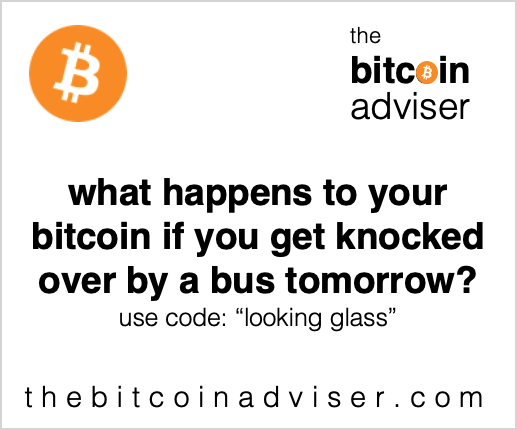*If you find this content interesting, sign up to my weekly newsletter, The Qi of Self-Sovereignty.
We too often look at money from the insular domestic viewpoint. However, it is also important to step back and think about currency, not just from the domestic but from a broader, global perspective. With this in mind, we should ask ourselves, how can our money globally be used as a force to promote prosperity and welfare? Or, as David Graeber points out in his book Debt: The First 5000 Years, “The real question now is how… to move toward a society where people can live more by working less?”
Let’s explore this question through the lens of David Graeber*.
*If you have not had a chance to read his book, there is a brief summary of the key points below.
In the book Debt: The First 5000 Years, David eloquently expresses what he claims to be the flaws of capitalism. However, he only briefly touches on the byproducts of egalitarianism (communism and socialism). Although wonderful in theory, they too are not flawless. When a communist or socialist group grows beyond the size of a small community, we tend to see the rise of authoritarianism, totalitarianism and dictatorships (Mao Zedong, Joseph Stalin, Adolf Hitler and Kim Jong-il, to name a few). It is, therefore, disingenuous to say that capitalism has not lived up to portrayed ideals when the same argument can be said for communism. However, in saying that, I believe Graeber has provided some deep insight into raw egalitarianism, of which many aspects would be of great value in today’s economy/society.
With this in mind, is there a way to build a hybrid system of sorts? One that bridges the benefits of the human economy, a society built on human relations and morality-based exchange between individuals for the greater good, and the commercial economy that rewards value creation, ingenuity and growth.
However, in order to create change, we have to identify the areas of concern. Let’s start with the way Graeber accurately and succinctly describes our current economy. “A system that demands constant, endless growth,” and that “it’s impossible to maintain an engine of perpetual growth forever on a finite planet.” Although accurate, he perceives the issue to be capitalism. However, I would argue that instead, the issue lies with inflation stemming from central bank policy. With this in mind, how do we pivot away from the need for endless growth? Let’s explore this.
- We set growth targets and expect maximum employment in an inherently deflationary world, where technology is slowly eating the labour market and driving down prices. It is non-sensical. To continue on this path, we have to incentivize consumption and borrowing through interest rate suppression and monetary expansion to reduce the cost of capital. In doing so, we increase our debt burden, which exposes our global economy to the disastrous effects of debt combined with deflation. As they say, we’re picking up pennies in front of a steam roller.
- Suppose we carry on with 2% inflation targetting and maximum employment. In this case, we will continue to debase our currency and suppress interest rates to stimulate growth against our debt burden and inherently deflationary environment. This wrecks havoc on the economy as inflation causing a rise in asset prices is effectively UBI for the upper class, while the lower class and wage earners see their cost of living increase.
- Interest rates are meant to be a metric for credit risk, ensuring malinvestment and poor fiscal responsibility are kept in check. However, as our debt burden grows, instead of allowing our interest rates to rise as an escape valve for increased risk, we see further currency debasement and the suppression of interest rates. We are creating greater amounts of systemic risk in our economy. 19% of US-listed companies are zombie companies. Up from 0.2% pre-2000’s.
We are in a world incentivized to push inflation and suppress interest rates and CPI to achieve our policy targets. This is not real growth. It’s leverage and manipulation of the denominator (currency) to give us perceived growth. And we are perpetuating our reliance on debt. But, if we’re only focused on maximum employment and inflation targeting, “we’re never going to see the forest through the trees”.
Graeber makes a great point in accordance with the points raised above, “presented with the prospect of its own eternity, capitalism… simply explodes. Because if there’s no end to it, there’s absolutely no reason not to generate credit—that is, future money—infinitely.” However, where he falls short, which he highlights, is realizing this issue is not with capitalism, but rather, our money.
To preface the next section, I think it is important to note that governments serve a vital purpose, they establish justice and domestic tranquillity, provide common defence, promote general welfare, and maintain liberty for their population. However, that’s not to say that all governments act in the best interest and fulfill the needs of their population, and that’s not to say that governments that currently act favourably, will continue to do so. Therefore, to maximize prosperity, we must put measures in place that ensure governments globally are kept in check, and these measures allow for the removal of power away from misaligned governments. The probability of a house fire is minimal, but we all still put in place measures to prevent a fire (i.e. insurance, sprinklers, smoke alarms, etc.).
The question we should be asking is, how can we change tact to a way that does not incentivize debt and inflation? One way is to tackle this from the policy side of the fence. However, this is primarily out of our control. Therefore, our only option is the monetary side.
With this in mind, what would a world with a freely accessible, trustless, fixed supply, store of value (SoV) or currency of sorts look like?
- Disincentivizes debt consumption – Taking on vast quantities of debt would be unwise unless the potential productive value creation far outweighs the interest payment. This would encourage saving rather than consumption and thoughtful investment over malinvestment and outright speculation.
- Alignment with our inherently deflationary world – Technology allows us to get more for less. As technology advances and value’s created, this accrues within the currency. However, without the potential for monetary expansion, the currency’s purchasing power would increase. Ultimately, our cost of living would decline and people would be able to work less and spend more time with loved ones, answering the question of how can we “move toward a society where people can live more by working less?”
- Sense of security – With no central coordinator, governing body or central bank, people can have confidence that their savings are protected from the threat of debasement, misguided decision making or self-interested parties.
- Charitable Contribution – It may be naïve, but I believe people do want to give back to their community; however, due to our economic conditions, they’re instead focused on survival. If people can work less and spend more time with loved ones, this will reignite the “Human Economy,” as Graeber puts it. People will have more time to give back for the betterment of society.
As should be evident, a permissionless and trustless store of value brings about needed change, not only for the individual, but it lays out positive incentives for nations. The governments/nations that offer favourable environments will attract people and capital, further enabling sustainable growth and prosperity. On the flip side, governments who act in a misguided or self-interested manner will quickly see their population flee both the country and the currency, shifting power away from the misaligned government and back towards the populace. This incentivizes governments to act with integrity, honesty, and transparency. However, this only works if there is a push for financial education in conjunction with a safe, trustless and permissionless asset that individuals can fall back on in times of stress.
Is this achievable? One option, as you may have guessed, is Bitcoin. Bitcoin provides relief to many of the hurdles listed above. Let’s explore this.
Reserve Currency < Reserve Asset
You may hear many members of the Bitcoin community in favour of Bitcoin as the global reserve currency. However, the current drawback to using bitcoin as a unit of account is its volatility (Although, as Bitcoin reaches saturation, its volatility will subside). In the near term, it would be challenging for an economy to operate effectively when the price of goods, services and assets can fluctuate noticeably day-to-day. For this reason, it is important to explore Bitcoin through the lens of a global reserve asset, rather than a global reserve currency.
Human Ingenuity
It is essential not to hinder the creativity of the free market. We are where we are today because of humanity’s resourcefulness. We need to strive to embrace and explore human ingenuity. Therefore, if a nation/government wants to peg its currency to Bitcoin, they are free to do so. However, if they feel that they have the ability to manage a Fiat currency in a sustainable, advantageous manner, then they have every opportunity to choose this path. However, as mentioned previously, if they act in a misguided or self-interested manner, their populace will quickly flee both the country and the currency, removing power from the misaligned government. Bitcoin keeps governments and nations honest as it gives people optionality.
Deflationary Environment
What makes Bitcoin unique over every other traditional asset is its true scarcity. It has a verifiable fixed supply of 21 million. Therefore, if Bitcoin were a reserve asset of sorts, as we see technological advancement, value creation and natural growth, this will accrue in the form of price appreciation. However, unlike Fiat, there is no escape value such as monetary supply expansion. This has two primary benefits:
- Reverses the transfer of wealth, to the lower class – Over time, if the lower class has an effective store of value, they’ll see their purchasing power increase, resulting in a decline in their cost of living. Quality of life will increase. This is in stark contrast to today, where we’re seeing the purchasing power of the wealthy increase, as traditional assets are flooded with fresh capital, while the purchasing power of the lower class decreases as they predominately hold cash.
- Reduction in consumption and waste – As an individual or a corporation, if you have access to an asset, such as Bitcoin, that you can safely invest in, and that slowly increases in purchasing power, in order to spend one must decide whether the investment, service, or product of interest provides greater value in comparison to the act of saving your capital. This incentivizes saving over consumption and malinvestment.
Charitable Contribution
How many people have you seen give up their job to work on a centralized Fiat currency, for the betterment of the community? To the outsider Bitcoin may look like a speculative asset, however, to the insider, you realize that its use case and benefits are numerous. But, more importantly, within the Bitcoin community, there are countless individuals, wealthy and poor, who are giving up their time just to give back to their local communities and to help educate individuals on the benefits of this technology. Although there are people who look to Bitcoin purely for financial gain, many do not, they are in this to help repair the social fabric of our global economy. Bitcoin, causes people to stop, step back and look at the bigger picture, and when they do, they realize they want to have a part to play in making this world a better, more prosperous place.
Furthermore, as the cost of living declines, people can work less for the same return, this aligns with the fact that we’re seeing greater use of AI and robotics, resulting in fewer available jobs, but it also means, as mentioned, with a decreasing cost of living, people will have more time to contribute, spend with loved ones and connect with the community, thereby, promoting the human economy.
You may be wondering, what about gold? Due to Bitcoin’s public/private key cryptography and the fact that it is digital and trustless, it can be stored in our memory in the form of 12 words. We have escaped Graeber’s issue with gold in that it can be looted and thus promoting warfare. If individuals decide to take certain steps they can remove reliance on third-party intermediaries, governments, central banks, military, or law enforcement. Traditional assets lack this capability as they are under the purview of our government. Bitcoin cannot be confiscated, frozen, or easily stolen. Therefore, Bitcoin has the potential to dematerialize borders, as capital can flow unimpeded to nations that offer favourable conditions and away from nations that don’t, ensuring that governments act as service providers in the best interest of their people.
Additionally, gold falls short as an effective medium of exchange, due to its tangible nature. It is not easily divisible, nor can it be used effectively in digital or global transactions without the reliance on third parties.
Lastly, Bitcoin’s value proposition is purely based on its use as a monetary medium. Gold’s value, on the other hand, is split between, investment (54.5%), jewellery (37.5 %), and technology (8.0 %). With many factors playing a role in the price of gold, there are many other variables to understand when investing in gold (i.e. increased demand from technology and manufacturing impacts the price of gold, regardless of its use as a monetary medium).
To end, you are most likely familiar with the Triffin Dilemma, “the conflict of economic interests that arises between short-term domestic and long-term international objectives for countries whose currencies serve as global reserve currencies.” For global stability, it does not make sense for another leading nation to become the world reserve currency or world reserve asset for that matter.
In light of this, if we want to move toward a society where people can live more by working less, should we not embrace a mutually beneficially decentralized asset, one that does not reward any individual nation, but rather benefits the people and human prosperity?
………..
Key points from the book “Debt – The First 5000 Years” by David Graeber
Below is a list of the summarized key points that Graeber lays out in his book. They are in no particular order:
Money & Markets
Graeber describes money as simply an IOU issued by the state. And, it is through the creation of taxes, that markets became what they are today, as a means of trade to obtain money to pay taxes. There is no evidence that what we understand markets to be, existed before this.
Human vs Commercial Economy
There are two types of economy in the eyes of Graeber:
- Human Economy (charity-based) – Built on human relations and morality-based exchange between individuals for the greater good of society. Exchange is for the betterment of society.
- Commercial Economy (profit-based) – Built on property law where humans themselves can become property through debt. It involves the debt-based exchange of goods and services between individuals. Exchange is for the benefit of the individual.
Graeber postulates that there is a detrimental decline in the economy when the commercial economy merges with the human economy. Historically, debt has been seen as a moral obligation. To pay debts is a form of honour. However, under the commercial economy, debt becomes a contractual obligation. He proposes that people naturally have an egalitarian communistic model of engagement (Human Economy). However, this breaks down with the use of debt/money as debt creates competition and an inferior and a superior party. This leads to the formation of hierarchy and reduces people to commodities. Eventually, the poor become enslaved to the rich, whether through the act of physical slavery or through debt. This does not happen when gifting your services/goods, whether to friends, family or for the betterment of the community. You do not expect anything in return.
Capitalism, Property Law & Economics
Graeber describes capitalism as a system that demands constant, endless growth. This can be seen in the many enterprises and even nations that have to grow in order to remain viable. He also states that “it’s impossible to maintain an engine of perpetual growth forever on a finite planet,“ and then he goes on to say, “presented with the prospect of its own eternity, capitalism… simply explodes. Because if there’s no end to it, there’s absolutely no reason not to generate credit—that is, future money—infinitely”
He brings up the question, in a capitalist society, are we really free if we have nothing? As to survive, we have to work.
What constitutes property if property rights allow us to do as we please with our property? Us? Is it then moral to enslave a person if they cannot pay their debts? Essentially, property law makes us both the master and the slave.
Graeber does not agree with the notion of money, economics, central banks and modern monetary policy. We should not encourage a debt-based economy, especially one that gives certain individuals the power to expand the currency at will and tinker with interest rates.
Gold
As a ledger is simply a record of transactions, it is not of value to a thief when stolen. Precious metals, however, are of benefit as they can be melted down and sold. “As a result, while credit systems tend to dominate in periods of relative social peace, or across networks of trust, in periods characterized by widespread war and plunder, they tend to be replaced by precious metal.”
One of the major flaws with modern-day gold is that there is no accurate record of how much gold there is due to the paper gold market.
Graeber ends the book by saying, “The real question now is how to ratchet things down a bit, to move toward a society where people can live more by working less.”










